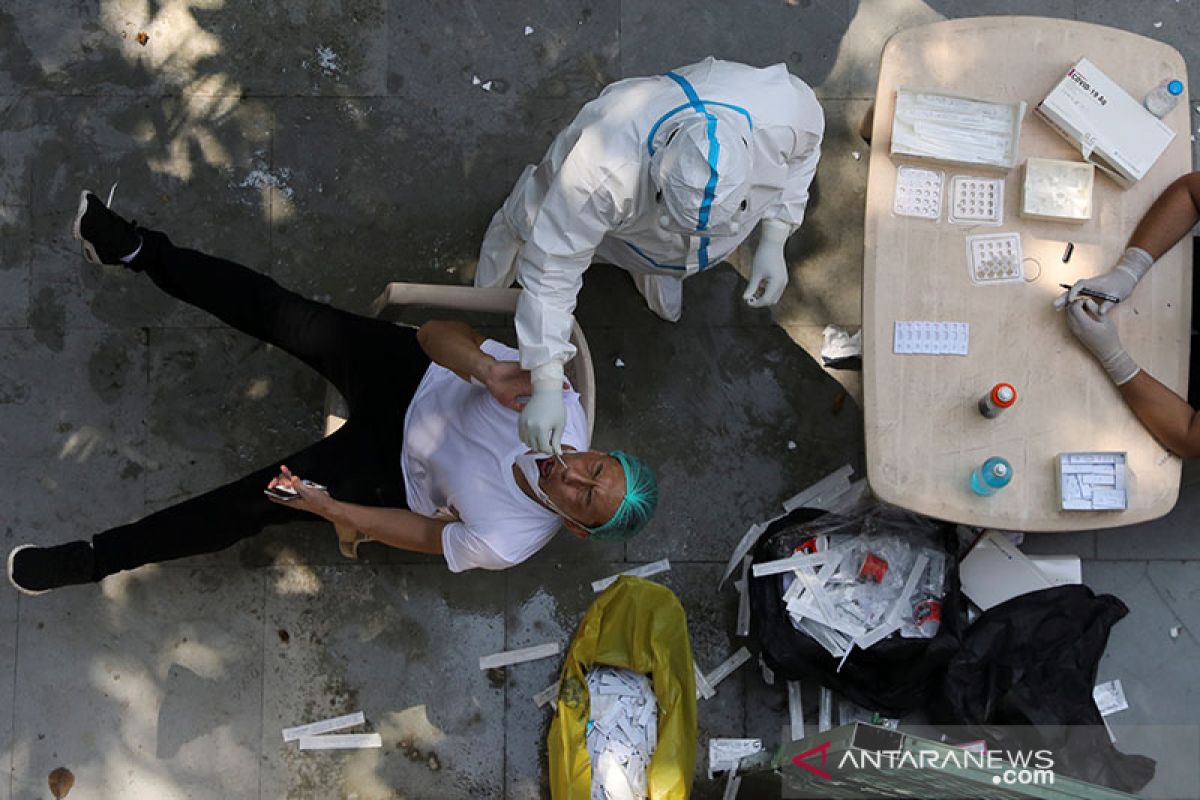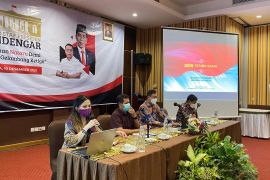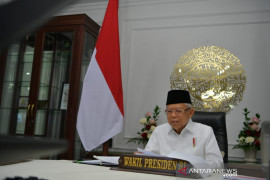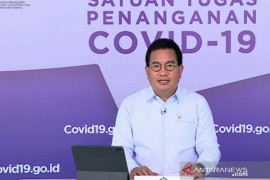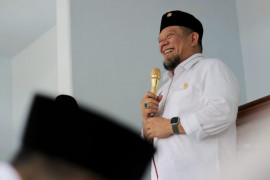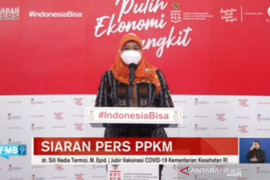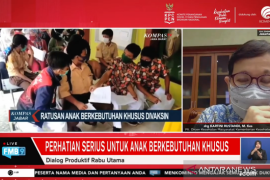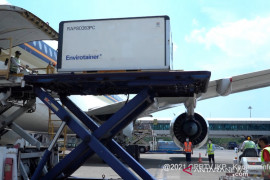President Joko Widodo had earlier announced the same target. According to reports, as of the beginning of September, Indonesia’s existing inspection facilities have increased their testing capacity to analyze 28 thousand specimens per day.The President recently directed the Ministry of Health, referred to as Kemenkes, to chart out a plan for conducting COVID-19 tests and detecting the transmission of the virus in provinces across Indonesia.
The plan for the implementation of comprehensive COVID-19 tests must include data collection and preparation of examination laboratories in each province as well as the provision of inspection facilities in each province, President Widodo said.
"We need planning so that it will be seen which positive cases are in which region or province, and this lab network strategy is important, not based on administrative areas. The design for planning must really exist and must be prepared," Jokowi elaborated.
This focus on boosting Indonesia’s testing capacity reflects the importance of conducting tests to tackle COVID-19, and efforts to stem its spread and impact. Tests are vital to data gathering measures and efforts to map out an accurate number of confirmed cases.
Related news: COVID-19 Task Force targets testing of 30 thousand specimens daily
Related news: Jokowi asks ministry to design COVID-19 testing plan for provinces
Despite the importance of testing, especially when it comes to those who have been carrying out activities outside of their homes, many people are refraining from opting for them voluntarily. Many find COVID-19 testing a source of anxiety, saying they are not ready to find out whether they have contracted the virus or not.
On its part, the COVID-19 Handling Task Force has emphasized multiple times that it is important to carry out tests as asymptomatic patients can end up harming not only themselves, but those around them as well.
Highlighting the importance of testing to identify asymptomatic patients, the task force has said that it is everyone’s responsibility to ensure they do not inadvertently become carriers of the virus and put others at risk, especially vulnerable groups such as senior citizens and people with pre-existing medical conditions.
With the number of confirmed COVID-19 cases still on the uptick, the government has begun to accord more attention to asymptomatic patients, saying that it will prepare hotel facilities for patients showing no or mild symptoms.
Such measures show greater emphasis is being laid on ensuring asymptomatic patients do not become carriers of the virus and infect those around them.
When it comes to COVID-19 testing, the Indonesian public has two options — taking the rapid test, which delivers results in under 30 minutes, and, the polymerase-chain reaction (PCR) test, known as swab test, which takes slightly longer to generate results, but is more accurate than rapid testing.
Related news: Government mandates film crew in Jakarta to undergo COVID-19 testing
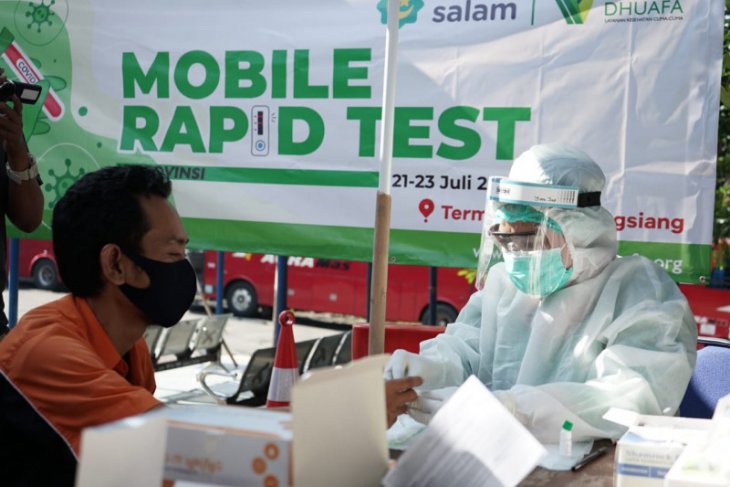
Procedures
Most members of the public may be more familiar with rapid tests, with perhaps more people having undergone this type of test rather than the PCR/swab test. The rapid test involves drawing a drop of blood by pricking one’s finger, using a small needle, and putting the sample into a small testing contraption, which generates results in approximately 15 minutes.
Based on team ANTARA's own experience with the test, there is barely any discomfort involved in the procedure.
The convenience and promptness with which rapid tests generate results, however, come at the cost of accuracy. The tests do not show whether one has contracted the virus or not; rather, they determine whether blood samples are reactive to the tests or not.
In July this year, the COVID-19 Handling Task Force had prescribed that rapid tests not be used for diagnosis, in accordance with the fifth revision of the COVID-19 handling and preventing guidelines issued by the Indonesian Ministry of Health.
However, due to limited testing capacity in domestic laboratories for PCR test specimens, rapid tests can be used for screenings or for specific populations that are deemed at higher risk of contracting the virus.
As for PCR tests, while they are more accurate, they can take longer to process results. Also, many people seem to be put off by the procedure itself, which involves taking a specimen from the nasopharynx with the help of a swab tool.
For 54-year-old Hilda, however, the experience of undergoing a PCR test was not especially painful. “It felt like a tickle at most,” she said.
Despite the considerably comfortable experience, she recalled having doubts and feeling nervous in the moments leading to the procedure due to the “horror stories” regarding other people’s testing experiences, which she mostly gleaned from social media platforms and word of mouth.
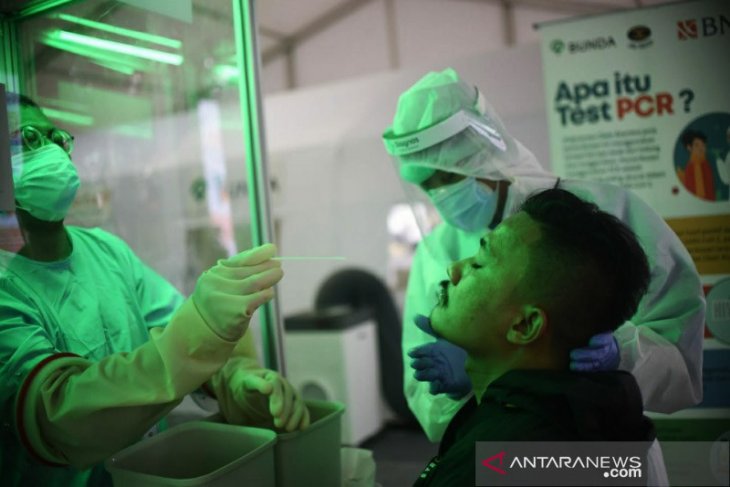
Hilda had to take a swab test in order to undertake essential travel. She said that she would not shy away from taking the test again, although she felt that the higher price tag would serve as a determining factor.
“I paid Rp2.5 million for the test. It is very expensive, and I think I would not have done it if I didn’t absolutely need to,” she said.
The price factor has also drawn the attention of the government, which is planning to set a ceiling price for swab tests. It is hoped that making the test more affordable would encourage the public to go for it.
Related news: Jakartans get free COVID-19 rapid and swab tests from National Police
Related news: Jokowi calls to cut inter-regional disparity in COVID-19 test capacity
Editor: Yuni Arisandy Sinaga
Copyright © ANTARA 2020
